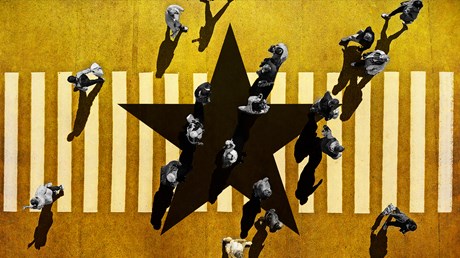The Broadway hit serves as a parable of the post-Christian West.

Some stories serve as parables of the period they are written in. Romeo and Juliet and Hamlet depict the religious tensions of Reformation England without ever mentioning the words Protestant or Catholic. Frankenstein reflects anxieties about early industrialization: Will our scientific power turn around and destroy us? The Lord of the Rings evokes World War II and the fight against fascism. Great stories can encapsulate historical moments, and indeed entire civilizations.
If I had to choose a parable for the post-Christian West, it would be Lin-Manuel Miranda’s Hamilton. Even if you haven’t seen it, you know the story: An impoverished immigrant arrives in a new land with nothing but his wits, joins the revolution, writes his way to recognition, fights his way to victory, designs the nation’s financial system, founds a newspaper and a political party, antagonizes nearly everybody, cheats on his wife, loses his son, decides an election, gets shot and killed by the vice president, and ends up on the ten dollar bill.
But Hamilton is about more than one bright, scrappy immigrant fighting his way to the top. The show features multiple clashes between old and new worlds, in which young, brash, loquacious energy collides with stuffy, patrician traditionalism. At the personal level, Hamilton takes on Aaron Burr and Thomas Jefferson. At the national level, New York City and its banks struggle for supremacy against Virginia and its plantations. At the international level, America goes to war with Britain.
In each case, the new kid on the block is derided as big-mouthed, garishly dressed, and obsessed with money. Yet the new kid wins anyway, confirming that the future belongs to Hamilton, New York City, and America, ...
from Christianity Today Magazine
Umn ministry


.gif)

.gif)
.gif)
